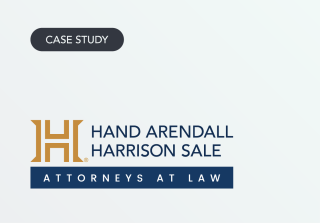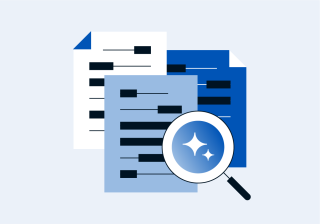From Chaos to Control: 7 Lessons from IG Leaders on Navigating Governance, Systems, and Change
The role of information governance is evolving fast—and so are the risks, tools, and expectations tied to it. In our recent Litera webinar, From Chaos to Control: Unravelling Information Governance & Records Management, we brought together industry experts to explore what modern information governance (IG) looks like, how to implement it effectively, and where AI and automation fit into the picture.
Hosted by Tina Harkins, Director of Product Management at Litera, the panel featured:
- Yasmin Abraham, Information Governance Manager at Kinder Morgan
- Kory Benedict, Applications Architect at Dentons
- Wendy McLain, Assistant Professor at LSU and former records leader at ExxonMobil, Valero, and others
The discussion covered everything from policy enforcement and system security to the impact of AI and the real-world role of tools like CAM and FileTrail. Here are seven of the top takeaways from that conversation.
Information Governance Means Different Things—But It Starts with People
When asked to describe information governance in one word, the panelists’ answers said it all: Accountability. Evolution. Money.
For Yasmin, IG is about ensuring that data is properly managed, protected, and disposed of and that everyone understands their role in that process. Kory pointed out how quickly the landscape is evolving thanks to emerging technologies. Wendy emphasized the practical reality that no IG program succeeds without adequate funding and a compelling case to leadership.
“Information governance is the mission and vision. Records management is the goals and tasks.” – Wendy McLain
Don’t Let Your Policies Become Shelfware
You can draft the most airtight policy in the world but it means nothing if people don’t follow it. According to Wendy, the key is to develop a full enforcement and education strategy alongside the policy itself.
“If we’re going to have a policy, it must be something we actually do. You can’t just bring a document—you need a plan to educate and enforce.” – Wendy McLain
Yasmin added that Kinder Morgan ensures policy visibility through onboarding, LMS training, compliance reminders, and regular reviews to keep content current and relevant.
Disposition Doesn’t Always Mean Deletion
Disposition planning is often viewed as a binary, keep or destroy, but Kory shared a more nuanced perspective. At Dentons, “getting rid of” data often means archiving it in low-cost, secure cloud environments so it's still available if needed, but no longer actively taking up expensive resources or exposing risk.
“We often define ‘get rid of’ as: archive it securely, don’t delete it. That way, it’s available, but only when it needs to be.” – Kory Benedict
This approach helps balance the emotional attachment many legal professionals feel toward legacy content, especially content tied to precedent-setting cases.
Tools Don’t Fix Problems. Processes Do.
One of the most important lessons from the panel: technology can’t solve what hasn’t been defined.
Too often, organizations buy IG software without first clarifying what they need it to do. Wendy explained that while tools like FileTrail, policy trackers, and research platforms each serve important roles, no one system does it all.
“There isn’t one tool to rule them all. You might need three or four—and that’s OK. Start by defining your goals.” – Wendy McLain
Real-World IG in Action: CAM and FileTrail
The panel also shared how they’re using specific tools to bring IG policies to life.
At Kinder Morgan, Yasmin’s team uses FileTrail to manage over 500,000 physical records, track metadata, and run extensive reporting to support an ongoing destruction project. “We use it every day. It’s not just IG. It’s cross-functional,” she noted.
Meanwhile, Kory shared how CAM plays an essential role at Dentons:
“We had a new policy that required adding a folder structure to every matter workspace. One CAM provisioning job updated thousands of workspaces, retroactively and going forward. It was seamless.” – Kory Benedict
If the Systems Aren’t Secure, the Policies Don’t Matter
Tina offered a critical reminder: governance isn’t just about information—it’s about systems. If your infrastructure is vulnerable or out-of-date, your content policies won’t help you.
“It’s not just about data or records. It’s about systems. Governance policies fail if your systems aren’t patched or secured.” – Tina Harkins
This is why many firms are leaning into cloud-first strategies. Relying on partners who can offer the scale, security, and compliance that’s increasingly difficult to manage in-house.
AI Is Here—and It’s Changing IG for Good
AI isn’t just the future, it’s embedded in the tools we already use now. Wendy emphasized that IG leaders can’t afford to ignore it:
“You can’t be an ostrich with your head in the sand. AI is already in Microsoft, in your records tools. Governance now includes managing how AI is used.” – Wendy McLain
Yasmin added that with AI’s increased reach, the stakes for governance are even higher. Transparency, risk awareness, and responsible use must be prioritized.
“Information governance becomes even more critical as AI spreads. We need policies for how AI is used, especially at scale.” – Yasmin Abraham
From Chaos to Confidence
Information governance has come a long way, but it’s still evolving. As content volumes grow and tools become more sophisticated, successful governance depends on three things:
- Clear goals
- Cross-functional alignment
- The right mix of people, processes, and technology
Whether you're managing physical records, digital files, or AI-driven metadata, the foundation remains the same: control, accountability, and smart decision-making.
How Litera Can Help
Litera’s Governance suite is designed to help legal teams bring order, consistency, and control to every stage of the information lifecycle. From managing access and automating workspace provisioning to tracking physical records and enabling defensible disposition, our tools work together to support your firm’s compliance, security, and efficiency goals.
Whether you're modernizing records management, scaling governance policies, or preparing for the next wave of AI-driven change, Litera provides the foundation to move from chaos to control.
Ready to hear the full conversation? Watch our on-demand webinar to dive deeper into the strategies, stories and insights shared by this expert panel.




